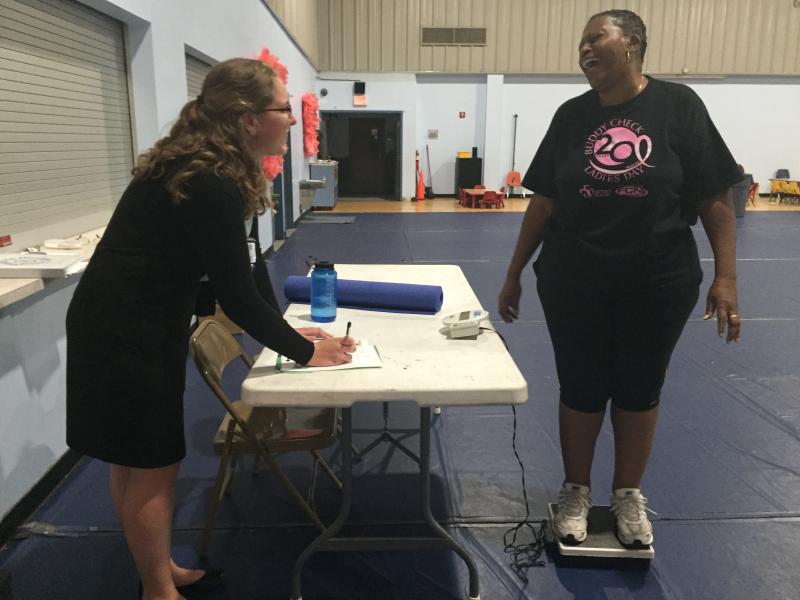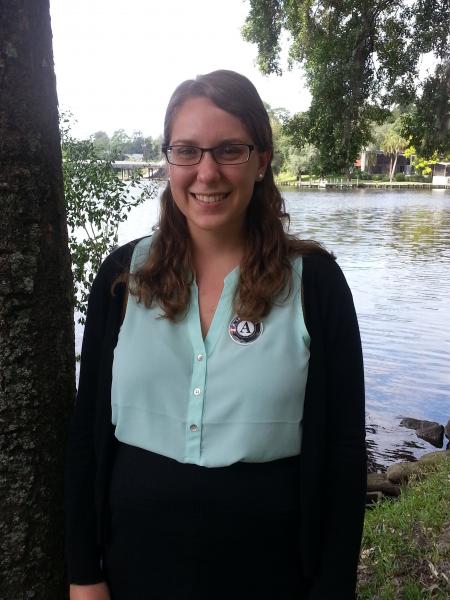“Your zip code determines your health.” I first heard this phrase in my second week at my host site during the Tobacco Free Jacksonville Coalition meeting. I was immediately confused. How is this possible? Don’t a person’s behaviors and genetics determine his or her health? Then I remembered a video I watched during Pre-Service Orientation, Unnatural Causes: Place Matters. This documentary compared two similar neighborhoods, which consisted of people and families who live below the poverty line. One city worked to make changes in the neighborhood by re-developing the area and creating a mixed-income neighborhood. Houses met the state’s safety standards. Sidewalks were built and street lights installed. A community garden was created so residents learned to grow healthy foods and could sell them for profit. The community thrived and was a safe environment for all.
The other neighborhood was not helped in any way. It had a high crime rate, and many who lived there were unemployed or under-employed. Many did not have health insurance and had limited to no access to healthcare services. This neighborhood was also a food desert, meaning there were primarily only convenience stores to shop from. Many residents suffered from chronic illnesses because of their diet, lack of exercise, and stress. The children in this community suffered stress disorders that are mainly seen in adults.
As I thought back to this video, I realized that where we live really does affect our health. It’s not only our personal choices and behaviors that impact our health, but our neighborhoods, workplaces, schools, and a number of other factors impact our health. Living in an apartment complex that meets safety standards affects my health. Whether my family members or roommates smoke affects my health. The kind of transportation I have affects my health, and whether or not I have access to a grocery store affects my health. This is why I am a National Health Corps member in North Florida. I am here to serve those whose health is suffering because of where they live. I am here to serve those who need the education they otherwise would not receive. I am here to serve those who need access to health education classes and health services.
 One of Baptist Health’s core values is to care for the entire community. Baptist Health provides heart health screenings throughout the community, including weight, BMI (Body Mass Index), Blood Pressure, Glucose, and a full Lipid Profile. At the end of the screening, participants have the opportunity to sit with a nurse who reviews their results with them and gives out health information materials, including free and low-income clinics in the area if they need follow up care but are uninsured.
One of Baptist Health’s core values is to care for the entire community. Baptist Health provides heart health screenings throughout the community, including weight, BMI (Body Mass Index), Blood Pressure, Glucose, and a full Lipid Profile. At the end of the screening, participants have the opportunity to sit with a nurse who reviews their results with them and gives out health information materials, including free and low-income clinics in the area if they need follow up care but are uninsured.
Soon, I will be providing tobacco prevention classes to middle and high school students, who can then become advocates for their families and friends to quit smoking. A great program that I am in charge of this year is “8 Weeks to Healthy Living.” Community groups such as churches or workplaces can sign up for this program, and we do a class with the group once a week for eight weeks. For the first hour, a registered dietician administers a nutrition lesson, and for the second hour, they participate in a group workout with an exercise specialist. Before each class, they weigh in and their progress is tracked from week 1 through week 8. At the beginning and end of the program, they receive a heart health screening so they can see how improving their diets and getting into the habit of exercise can improve their health. All of these programs and classes contribute to making healthcare and health education accessible for all, no matter where they live.
This problem will not be solved in one year, or even five years. As the public health sector continues to combat health inequities, there will be progress. I will not see it in my time as a National Health Corps member, but the efforts by those before me and my efforts now will contribute to the change that is to come. My zip code should not determine my health, nor should it determine anyone’s health. My motivation to serve is that one day it will be our choices that determine our health, not where we live.

This blog post was written by NHC Florida member Alicyn Mulder.
Alicyn serves at the Baptist Medical Center, Department of Community Health as a Health Educator.
